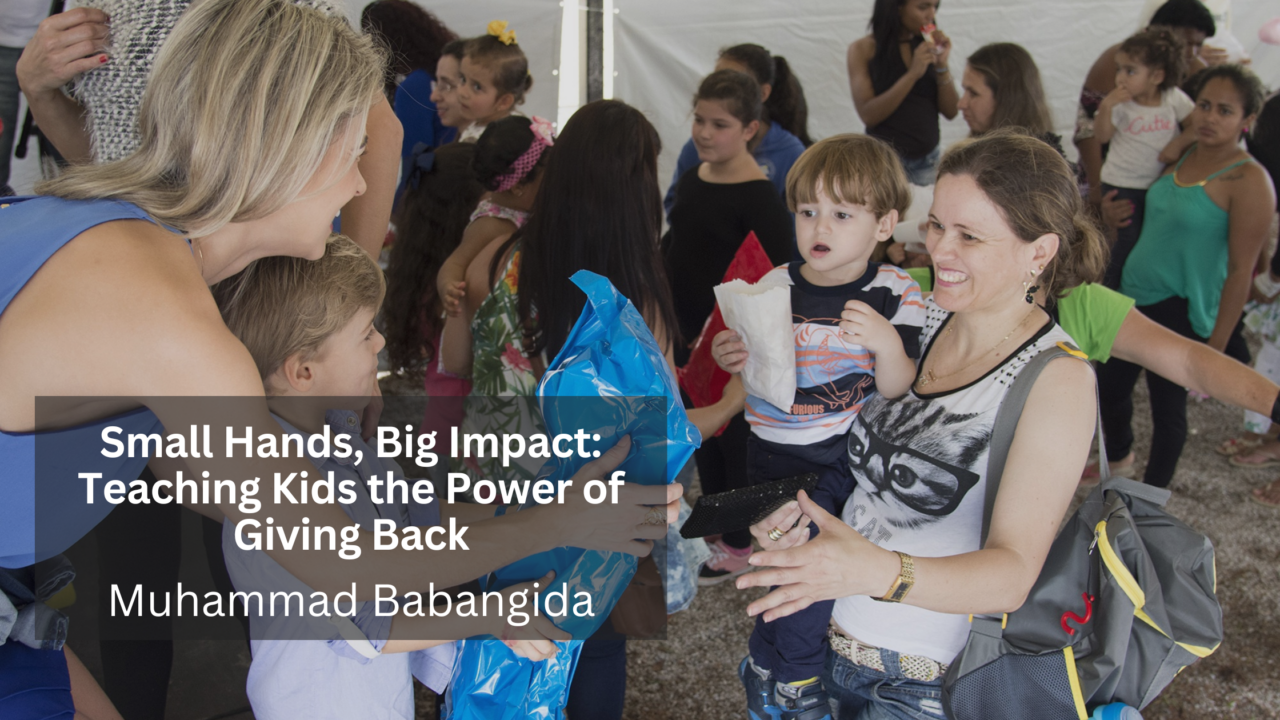Teaching children the importance of giving back is one of the most valuable lessons we can impart. While it may seem that kids are too young to make a significant impact, their actions can inspire change, both within their communities and beyond. Through small acts of kindness and charity, children can begin to understand the power of generosity and empathy. Here’s why teaching kids to give back is essential and how it can have a big impact on their lives and the world.
1. Fostering Empathy and Compassion
One of the first lessons that children learn when they engage in giving back is empathy. Helping others, whether through volunteering, donating, or simply offering a kind word, teaches children to understand the feelings and needs of others. It encourages them to step outside of their own world and view the lives of others from a different perspective. This experience helps nurture compassion and a sense of responsibility for their communities, both locally and globally.
2. Building a Sense of Purpose
When kids participate in charitable activities, whether it’s collecting food for a local pantry, cleaning up a park, or visiting the elderly, they begin to develop a sense of purpose. Giving back instills in them the belief that their actions matter, and that they can make a real difference. This sense of purpose not only boosts their confidence but also motivates them to continue contributing to society in meaningful ways. It’s a powerful feeling to know that you can help others, no matter your age.
3. Creating Lifelong Habits of Generosity
Teaching kids about giving back while they are young can help establish a lifelong habit of generosity. When children are taught to value kindness and charity early on, these behaviors become ingrained in their character. As they grow older, they are more likely to continue practicing generosity, whether through their time, talents, or resources. By instilling these values, we create future leaders who are committed to making the world a better place.
4. Strengthening Communities
Even small actions from kids can have a profound impact on their communities. Whether they’re organizing a toy drive, helping a neighbor with yard work, or raising money for a cause, children can make a real difference. These actions bring people together, creating a sense of unity and shared purpose. The ripple effect of their good deeds can inspire others to get involved, ultimately strengthening the bonds within communities.
5. Encouraging Gratitude and Perspective
When kids engage in acts of giving, they also develop a greater sense of gratitude for what they have. By helping those who are less fortunate, they learn to appreciate their own blessings and understand the value of what they may have once taken for granted. This shift in perspective fosters a mindset of gratitude, which can lead to greater happiness and a more fulfilling life.
Conclusion
Small hands can indeed make a big impact. Teaching kids the power of giving back helps them develop empathy, builds a sense of purpose, and creates lifelong habits of generosity. Their acts of kindness and charity not only improve their communities but also shape them into compassionate individuals who are eager to make the world a better place. By instilling these values early on, we are nurturing the next generation of changemakers who will continue to spread kindness and compassion throughout their lives.
